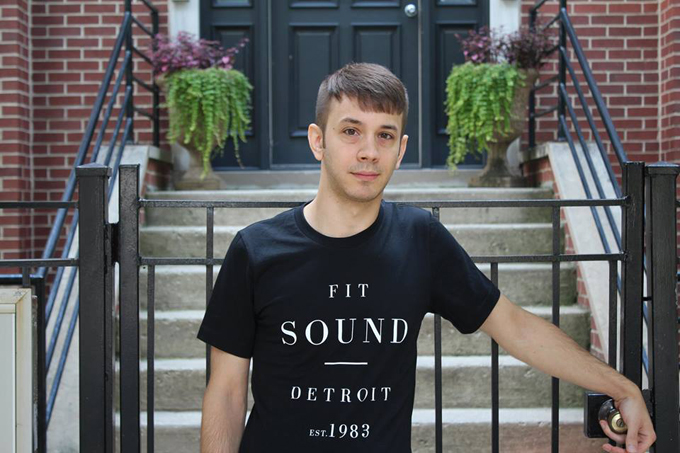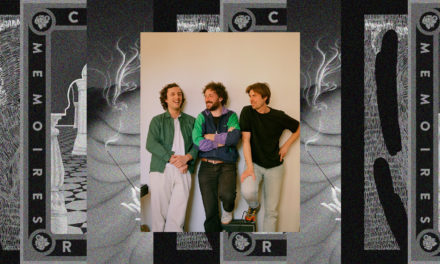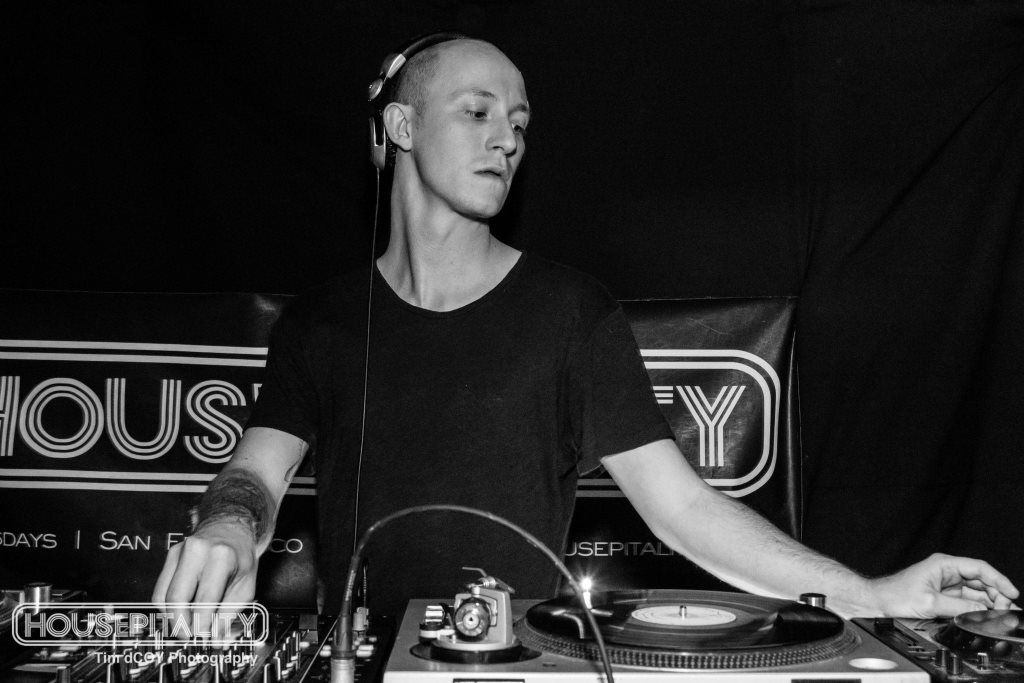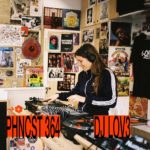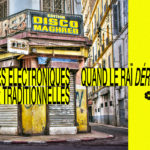“Blogging is dead, long live blogging!” is probably what could have said after reading the Open Letter written by Mr Mizek the 2nd of June 2014. Amongst qualitative websites, Little White Earbuds was always on the top of the list with two steps forward and very valuable content. The website has for a long time represented a watchdog to a long and painful drowning facing the huge amount of info published every day amongst low-cost blogging and content-free outlets. During the evolution of our activity, we were lucky to observe the growth of this website and the projects of his founder, simultaneously we were also discovering some not very shiny aspect of this industry. After reading his Open Letter and regarding the great A&R work done with Argot and Tasteful Nudes, we thought more than relevant to speak with Mr Mizek about his different activities and his vision of this game. Good reading!
– So You’re running LWE for more than nine years now which means that you arrived at a time where internet was not as developed as now. What was the starting point of this adventure?
I started LWE on a lark. I had created a few Blogspot blogs back in the day (early 00s) for my writings on music, but I wanted a new outlet that was less structured around full-on reviews. It was just a mp3 blog where I could share whatever I was listening to at the time (winter of 2005), regardless if it were obscure late 60’s prog-rock or the latest pop song. It was just for fun, basically. It didn’t turn into something more serious until a couple years later.
LWE started out as a purely solo endeavor. One of the major turning points was when I helped leak an LCD Soundsystem track from their second album and was reblogged by the Gawker blog Idolator. Not only was I hit with a very angry cease and desist letter from DFA, but also a larger new audience switched on. The demand for my posts increased, so I was writing every day and eventually transitioned to littlewhiteearbuds.com instead of just a WordPress blog in December of 2007.
I had lasted about one year by myself before I started federating some contributors to help me keep up. The turning point also came right as I started to become more interested in house and techno. At that time, there were not many other sites covering that music seriously, so when we came along people paid attention.
It was a combination of sorting through people applying to contribute and asking other writers I was admiring to get involved. Admittedly, I targeted quite a few RA writers. I was also lucky enough to “find” a few writers who have gone on to do great things, like Jordan Rothlein, who is now a full-time staffer for RA.
I was very stringent about quality control when picking the team. I wanted people who could be both critical and clear, positive and negative, and cognizant of the context in which the music existed. I didn’t need to add more crappy writing to the Internet.
– It seems that the promo industry clearly biased the process of choosing and partially write independent reviews. Do you think that independent blogging is really possible on the long run? It seems to be an everyday struggle.
I think independent blogging is completely possible in the long run, but only if you have realistic expectations for the outcome. Those who do it just for their personal satisfaction will have no trouble and will probably find some audience, even if it is small.
To be wholly independent, financially stable, and have a sizable audience, that is a near impossible challenge. Between the decline of the value of online advertising and the difficulty of finding funding that doesn’t come with strings attached, it is just very difficult to do. LWE has an ad sales guy, but we’d need him to work full time to get the kind of funding we need on a regular basis.
That being said; we recently started accepting donations from readers in order to keep the site running. I was very pleasantly surprised to find that people placed enough value in what we do to donate their hard earned money to us. So, the right site with the right, generous audience could make it work. But it won’t be easy.
– Don’t you think that the social networks also changed clearly the way to share content on the internet? LWE seems to have steadily built a network with content quality strategy. For not personal blogging the time when you just had to share good content to be read is gone, did you focused on strategy? In which extent do you think it’s meaningful for a blog/website?
I think it became more important to be active on social media if you want to be taken seriously and fully involved in the conversation. One thing I’ve never been good at, though, is the business behind creating a successful publication. I’ve always been too much focused on the quality of our content to think about the best ways to get it to people. It’s such a turn off to be so strategic about things – it takes away the “magic,” if you will.
– That’s nice posture to pay your contributors, in France even some famous webzine don’t pay their writers. Did you have a job aside LWE to make a living? How were you balancing all your activities?
Throughout running LWE, I’ve had a day job to support me as LWE has never been profitable enough to pay any of my expenses. It’s boring stuff and not really for a “career.” As for how I’ve been able to balance my activities, that’s not really clear to even me. I guess it’s become so much of a routine to me that I don’t even think about the untold hours I’ve put into these projects. One thing that helped me was being able to check my email/website from work, whether or not they approved. It has also been huge to have the help of LWE’s support staff, like Chris Miller our promo manager, Brandon Wilner, our tireless assistant editor, and Per Bojsen-Moller, our indefatigable podcast producer. Without them, I could not have kept the site going. Beyond that, I clearly put aside having a social life and committed myself to doing another 3-4 hours of work per night when I got home from my job. All the more reason it’s been a huge relief to slow the pace of LWE’s output. I sleep better and am less stressed out.
– Do you think that the job of music journalist has been killed by the low-cost blogging and the new-social medias? How do you see the future of cultural journalism in medium/long run? Do you think that a website as RA will still keep his leadership in the future?
I think the role of the music journalist has changed; it has not been killed. On one hand, it has become much more focused on presenting multimedia news stories (e.g.,. news about a new record accompanied by a stream) rather than detailed journalism. It is only a reaction to what audiences are clicking on, which means a lot of journalists lack the impetus to dig deeper or provide something people wouldn’t expect. On the other hand, the freedom of the Internet (e.g.,. no restrictions on the length of stories) and the generosity of some outlets is allowing people to do that deeper exploration of topics — the so-called long reads.
Critics are experiencing the toughest time. People don’t need critics in the same way they used to — to help audiences narrow down what they should buy — since pre-listening to a record is not only easy but encouraged by artists/labels themselves. Granted there is still so much music out there that having some trusted arbiters of taste is helpful, but there are so many other filters/outlets for this that I have my doubts about how valued music critics will be in the next 5-10 years. I still greatly value criticism, but to be honest, I rarely read it these days — in part because a lot of reviews are not much more than regurgitated promo copy with a veneer of opinion laid on top. I will continue to write criticism and support it through LWE regardless what the masses want because I think it’s important to have voices out there supporting good music (regardless of its promo power) and calling out the crap.
It’s impossible to say whether any media outlet can maintain its grip on a leadership position. Resident Advisor is very well capitalized, so it will be hard to imagine them going away anytime soon.
– So how did you come to the point of creating your own labels?
The first label, Stolen Kisses, came from an offer of a production and distribution deal from a distributor. I didn’t intend to start a label, mostly because I thought it was too costly. But with someone else offering to put up the money for manufacturing it suddenly became feasible. I always knew, though that Stolen Kisses would be limited to a handful of releases because the model (one strange track, one strange remix) would be tough to maintain.
In the end, though, working with the distribution company meant I didn’t have control over the manufacturing and that lead to some mistakes and bad decisions. Argot started because it turned out I loved running a record label and needed full control in order to do it to my high standards.
– Did it also come to the fact that constantly writing about something you like brings you naturally to reproduce it with your own expectations?
That’s an interesting point. I guess yeah, having been critical about this stuff for so long gave me an idea of what I thought was necessary to do it the “right” way. Or at least, I knew what I liked based on the work of others who had done it the right way. But I’m also resistant to the idea that just being involved in this way meant it was a natural progression. Running a label is too difficult, too time consuming, too emotionally draining just to fall into randomly. You have to want it.
– Regarding Argot, what was the thing that you thought you would have done with your own approach and that you finally do as all the label manager do? On the other hand, what are the thing you are doing with a way more personal touch and that you did not think that you would give that amount of attention on it initially?
I don’t know if there’s much I do that’s very typical of label managers. That part is not clear to me yet. I think I need to be involved longer to be able to say. As for something I spend a lot more time on than I expected, I’d say I’m a lot more involved in shaping the music’s final shape. A lot of times I get music that is 98% perfect, and I offer suggestions to get it to 100%. But a lot of times that means listening to 9,837,498,273,498 different mixes of the track before finally settling on one. In some ways, I didn’t expect to feel like an executive producer as much as I do.
– Do you think the way that the current market structure today helps clearly to focus in bringing innovative release?
I believe the market provides lots of opportunities for innovative artists and their chances at getting noticed. Platforms like Soundcloud make music discovery easier than ever and in a lot of ways, evens the playing field among artists. What innovative artists come up against, though, is audience biases towards the types of music they already know and love. That’s part of the reason we see a new bout of nostalgia for the naive days of dance music every ten years or so — or why all indie rock sounds like the last 40 years of rock music churned in a blender with distinct chunks of influences clearly present. It takes a while for innovative music to sound just alien enough to be novel without scaring off timid listeners. That being said; some people seem always to crave the “new new,” so there will always be a trickle of innovative stuff that has the potential to spread much wider.
– Did your previous work gave you hindsight about how you wanted to put forward the music you’re releasing?
Absolutely. It leads me to focus on the artists creating the music rather than getting a bunch of remixes to get people’s attention for the originals. I knew that it was most important to put the original artists first and to showcase their talents across an entire record – preferably with EPs rather than singles (that I still do, where it makes sense). It made me realize that various artist singles are complex to setup, and record shoppers often feel more strongly connected to the work of a single artist at a time.
It also leads me only to release the music that truly moves me – and that stays true to my mission statements. Too often, I think that labels move away from these things when they get older, and it dilutes their quality that is the first-appealing aspect. I don’t want ever to release something because it seems like the right thing to do rather than because it rocks my world.
– Regarding your work as LWE’s Chief Editor, in which extent you need to have bounds with your artists you are releasing?
Being deeply involved with the music industry, to the point where I’m meeting and becoming friends with the artists I admire, has informed my sensibilities about what’s appropriate for LWE to do. If there’s someone I’m close with I won’t review their records (if it’s worth writing on I’d have someone else do it), but I might do an interview with them because I have some insights others might not have. I guess it’s just important for me to only present a critical viewpoint if I don’t have a vested interest. Besides that, I won’t let LWE prevent me from working with anyone. In the larger scheme of things, I’m hoping my legacy has more to do with putting good music into the world than writing about it.
– What is you for you the value added of a label nowadays in electronic music? As a dj how do you think about this when you buy your records?
I believe a label provides value if they’re presenting a distinct point of view that is not currently being filled by any or many other labels. I think a lot of people ignore this when starting labels these days: they just like music, have money and a copy of Photoshop, and think that’s enough to justify adding to the musical world. And while those are the basic prerequisites, I think more people would do well to not just start a label in order to feel more involved or important in the scene. Just like not everyone is cut out to be a musician or artist, not everyone has the wherewithal to be a good label owner.
As a DJ, I buy the records I believe will retain their value (musically, mostly) for years to come. I try to think the same way when putting new music into the world.
– Recently, We were lucky to discover The Black Madonna in Panorama Bar for a great set, could you tell us more about how the meeting happened? Who is The Black Madonna?
Marea (the Black Madonna) has been a fixture of Chicago’s dance music scene for a while now, whether working at the now-defunct Dust Trax label or just being a DJ you’d see around. We had met a few times, and at some point, in the early days of Argot, I invited her to my flat to listen to her demos and show her what I was working. She showed me the basic outlines of the two tracks I would end up releasing as the “Lady of Sorrows EP,” as well as the tracks she would end up releasing on Stripped & Chewed. I was impressed by them all even in their skeletal state, and I believed in her ability to make something special from them. It took the better part of the year for them to get fleshed out, but I couldn’t have been happier with the finished results. She also became a great, close friend.
In addition to being one of the sweetest and most-thoughtful people I know, she’s an exceptional DJ, who brings a ton of energy to her sets, as well as the music director of Chicago’s best and more historical dance music club, Smart Bar. She works so very hard to keep quality music flowing through Chicago (not an easy task, let me tell you) and to support the talented people who live here. I’m grateful to call her my friend and constantly pleased to have her among Argot’s artist roster.
– In which way would you like your label resist to the damages of time? Do you have some examples?
I’m hoping that my labels won’t be considered as the product of a certain era, and their releases will not sound dated. It’s acceptable to bear some hallmarks of the context in which they were released, but I’m hoping that someone who buys our 50th release (lord willing) will find themselves equally delighted when looking through the back catalog. I have tried pretty hard to avoid the trends of this era, like purposefully underproduced house music because I know that its shelf life is short and not important for me to document. I’ve always placed a great deal of emphasis on timeless music in my own music collection, so I’m hoping our releases will fit into someone else’s collection in the same way.
– What are your next projects in the pipelines?
There are three more records scheduled to come out on my labels this year: an EP by the young Detroit producer Community Corporation; a new single from Olin (who did ARGOT002) in collaboration with Savile (both from Chicago); and a new EP from the French producer Anaxander. I’m already hard at work on the release schedule for next year, which will hopefully include new releases from some of the original cast of characters, as well as records by both established and brand new talents. I’m also looking to expand the labels’ remit beyond dance music, but I can’t say how just yet. There are still puzzle pieces that need to fall into place.
Besides that, I’m hoping to DJ more outside of Chicago and bring the Argot/Tasteful Nude brands with me in the form of label nights or tours. What I would really like is to bring some of the folks tearing it up in Chicago on the road with me. People don’t know what they’re missing, and I’m eager to show them.

